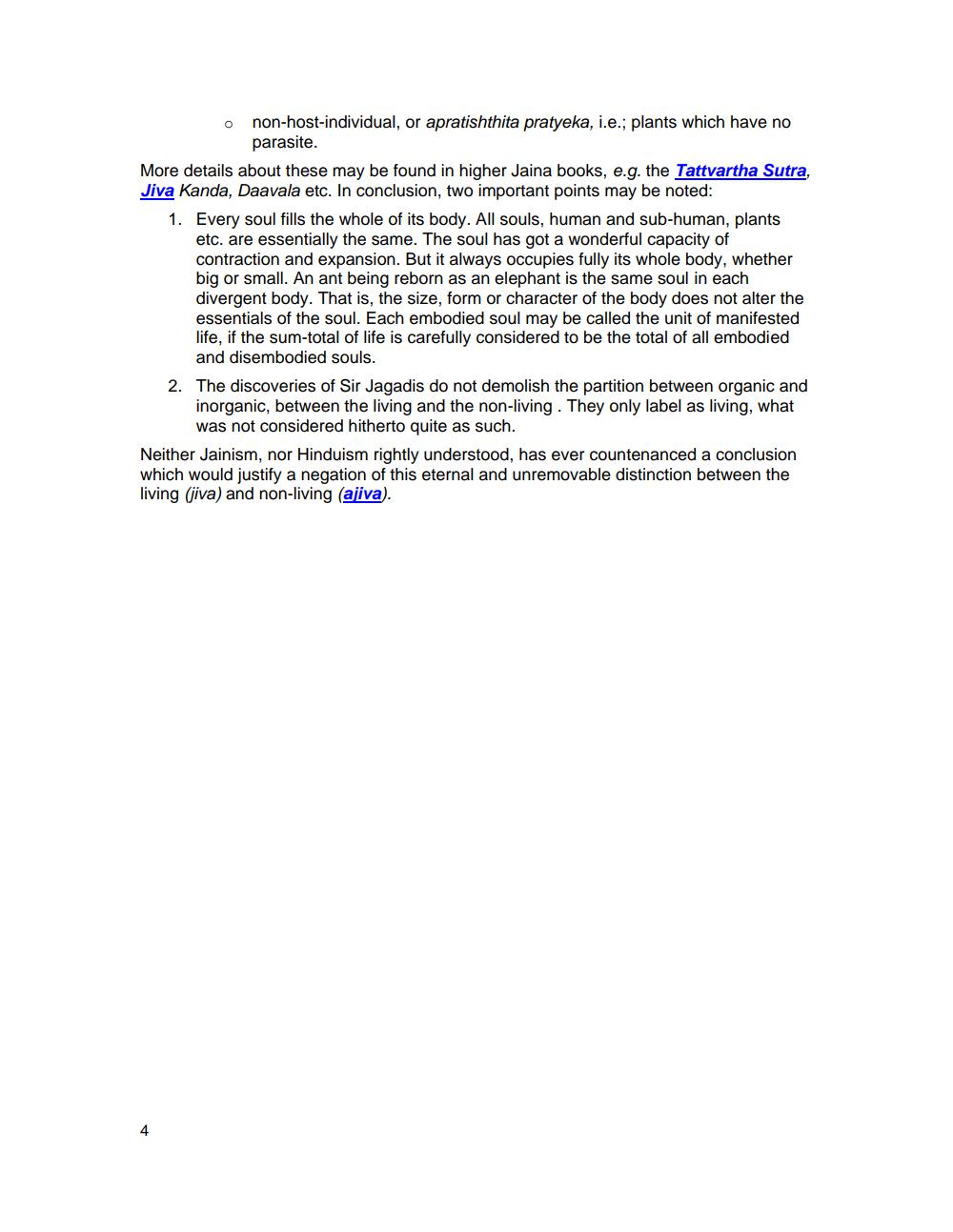Book Title: Jain Plantology Author(s): J L Jaini Publisher: J L Jaini View full book textPage 4
________________ o non-host-individual, or apratishthita pratyeka, i.e.; plants which have no parasite. More details about these may be found in higher Jaina books, e.g. the Tattvartha Sutra, Jiva Kanda, Daavala etc. In conclusion, two important points may be noted: 1. Every soul fills the whole of its body. All souls, human and sub-human, plants etc. are essentially the same. The soul has got a wonderful capacity of contraction and expansion. But it always occupies fully its whole body, whether big or small. An ant being reborn as an elephant is the same soul in each divergent body. That is, the size, form or character of the body does not alter the essentials of the soul. Each embodied soul may be called the unit of manifested life, if the sum-total of life is carefully considered to be the total of all embodied and disembodied souls. 2. The discoveries of Sir Jagadis do not demolish the partition between organic and inorganic, between the living and the non-living. They only label as living, what was not considered hitherto quite as such. Neither Jainism, nor Hinduism rightly understood, has ever countenanced a conclusion which would justify a negation of this eternal and unremovable distinction between the living (jiva) and non-living (ajiva).Page Navigation
1 2 3 4
